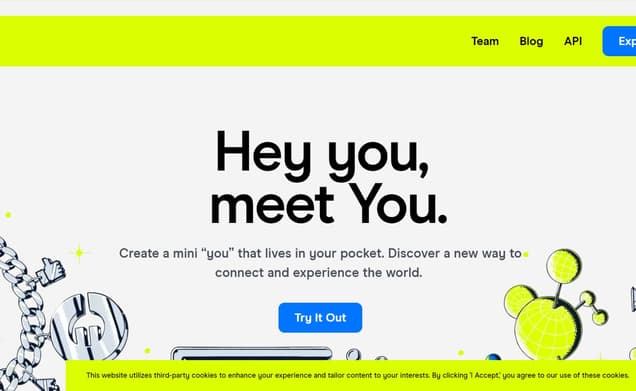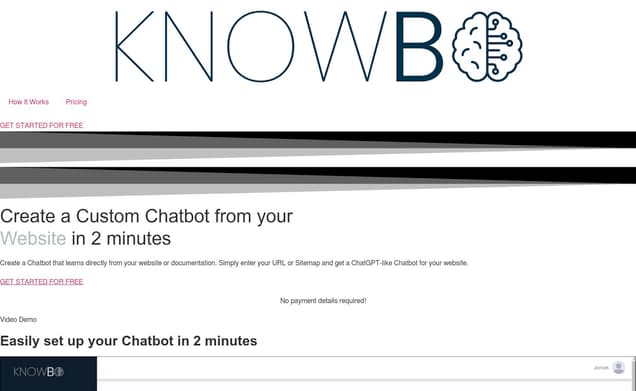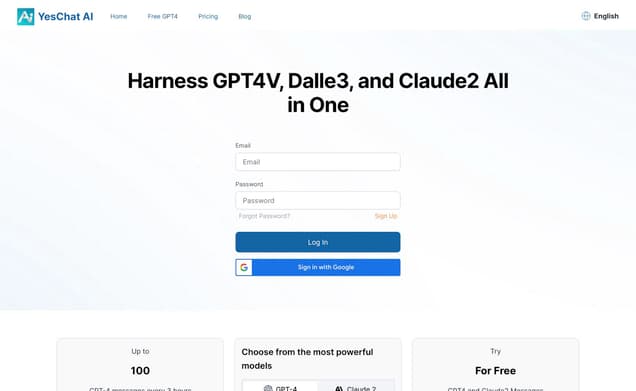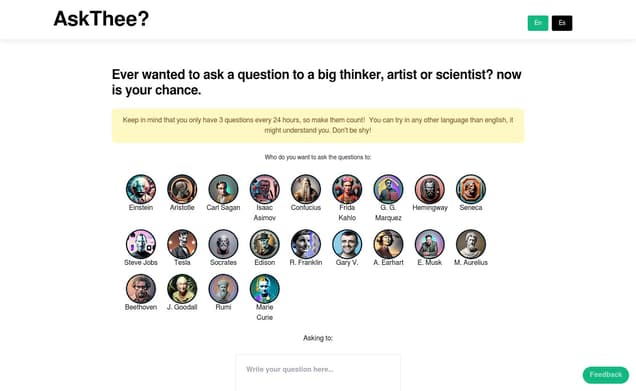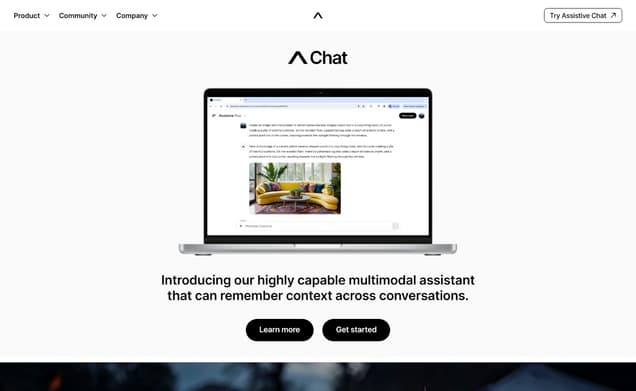Role Plai
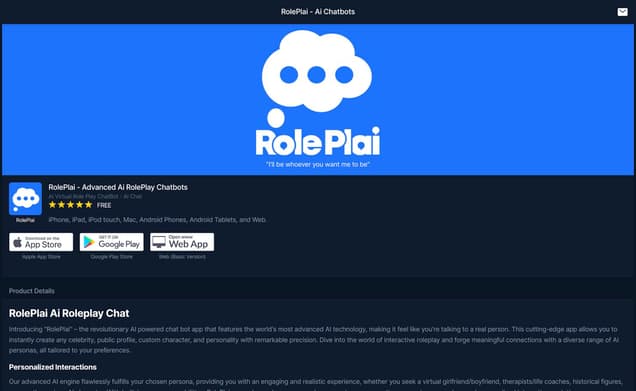
What is Role Plai ?
Meet Role Plai, your innovative chatbot companion. Designed to streamline communication, Role Plai combines cutting-edge AI technology with user-friendly interfaces. Whether you're a business seeking efficient customer interactions or an individual looking for a virtual conversation partner, Role Plai has you covered. Engage in natural conversations effortlessly and witness the power of AI-driven dialogue. Take a deep breath, explore the future of communication with Role Plai.
Features :
- Natural Language Processing
- Customization Options
- User-Friendly Interface
- Versatile Applications
- Seamless Integration
Pricing :
- Experience the magic of Role Plai with our flexible pricing plans. Choose the option that suits your needs, from individual usage to enterprise solutions. Our transparent pricing ensures value for every user.
- Discover the potential of Role Plai without breaking the bank. Explore our cost-effective plans and unlock the full spectrum of conversational possibilities.
Estimated Visit Traffic :
264.68K /MonthUser Distribution :
United States - 44.32% | Honduras - 12.46% | Israel - 5.77% | Netherlands - 3.37% | Kenya - 3.11%Tags :
ChatbotNavigating the Future of Work: The Role of AI in Industrial Automation
In a recent live panel event, industry experts gathered to discuss the evolving landscape of industrial automation and the critical role that artificial intelligence (AI) plays. Here's a dive into the insights shared, looking at current trends and future predictions as AI continues to integrate with industrial processes.
1. AI as a Catalyst for Efficiency and Innovation
AI serves as a catalyst that can significantly enhance efficiency and foster innovation within industrial settings. It augments worker engagement, improves productivity by supporting decision-making, and acts as a bridge in overcoming communication barriers.,One significant application referenced by panelists includes AI assisting in translating languages and making trainings or information accessible, enabling workers to receive guidance in their native tongues, which fosters inclusivity and enhances learning outcomes.,Another key use case involves AI facilitating access to complex data and simplifying its retrieval. This has the potential to revolutionize industries like manufacturing, where quick access to accurate information can drastically improve maintenance and operational procedures.
2. Job Roles and AI: Transformation Not Replacement
There's a general consensus among experts that AI is not about replacing human workers but rather reshaping job roles to allow employees to focus on strategic and creative aspects of their jobs.,While AI may result in the automation of a certain routine and manual tasks, it simultaneously creates new roles and opportunities that necessitate a broader skill set, underscoring the irreplaceable element of human judgment and ingenuity.,By offloading mundane tasks to AI, workers can channel their skills toward more value-adding activities. This not only elevates job quality but also supports businesses in adapting to an increasingly digital and automated landscape.
3. Predictive Insights and Digital Twins
AI's ability to simulate and predict outcomes using digital twins was highlighted as a revolutionary aspect that could turn many industrial processes on their head.,Digital twins, combined with AI, allow for sophisticated simulations of real-world objects and processes, providing invaluable insights into performance and potential areas for improvement even before physical prototypes are created.,With AI, companies can leverage previous data and predictive models to make more informed decisions about maintenance, scheduling, and development—ultimately leading to cost savings and higher product quality.
4. Navigating the Ethical Landscape of AI in Automation
The adoption of AI in industrial automation comes with the responsibility of navigating ethical implications, including job displacement concerns and decision-making transparency.,Panelists emphasized the importance of ethical considerations when deploying AI solutions, advocating for responsible development that takes into account the potential ramifications on the workforce and wider society.,The discussion suggested a growing need for ethical guidelines and regulatory frameworks to ensure that the development and application of AI in industrial automation benefit all stakeholders and do not exacerbate existing inequalities.
5. Role Plai Video Summary
The panel, which brought together a diverse group of professionals from various sectors, explored AI's impact on efficiency, worker engagement, communication, and the predictability of industrial processes. They also touched on ethical considerations and the importance of approaching AI integration with a measured understanding of its capabilities. As AI becomes increasingly embedded in our tools and systems, it can drive transformative changes in industrial automation, suggesting a future where AI not only optimizes but also redefines roles and productivity within industries.
Other Role Plai Related Videos

The Role of the United States in Supporting AI Technology wNov 8, 2023

AI and It's Impacts on Role Playing and Solo Role PlayingFeb 8, 2023

Role of Artificial Intelligence in Healthcare (AI in cardiology by ...Nov 27, 2023

The role of artificial intelligence in achieving the Sustainable ...Oct 14, 2022

The Increasingly Important Role of AI in Customer ExperienceJan 24, 2023

Role Model AI Review, Demo + Tutorial I Generate ... - YouTubeNov 26, 2023

Tom Rushbrook, Nicoline Van Enter | Around 2023 - YouTube1 month ago

The Role of AI in Personalized Engagement MarketingAug 16, 2019

Fireside Chat with Microsoft CVP & Industry Leaders - YouTubeOct 25, 2023

AI's Role in Clinical Trial Meta-Analysis - YouTubeJun 8, 2023
User Reviews On Twitter
 Eudália Poltherbilogicamente homem,sexualmente mulher,uxoristaRolePlai - Ai Chat Bot
Eudália Poltherbilogicamente homem,sexualmente mulher,uxoristaRolePlai - Ai Chat Bot
RolePlai
Contém anúnciosCompras no app
play.google.com/store/apps/details?id=com.roleplai.app
RolePlai - Ai Chat Bot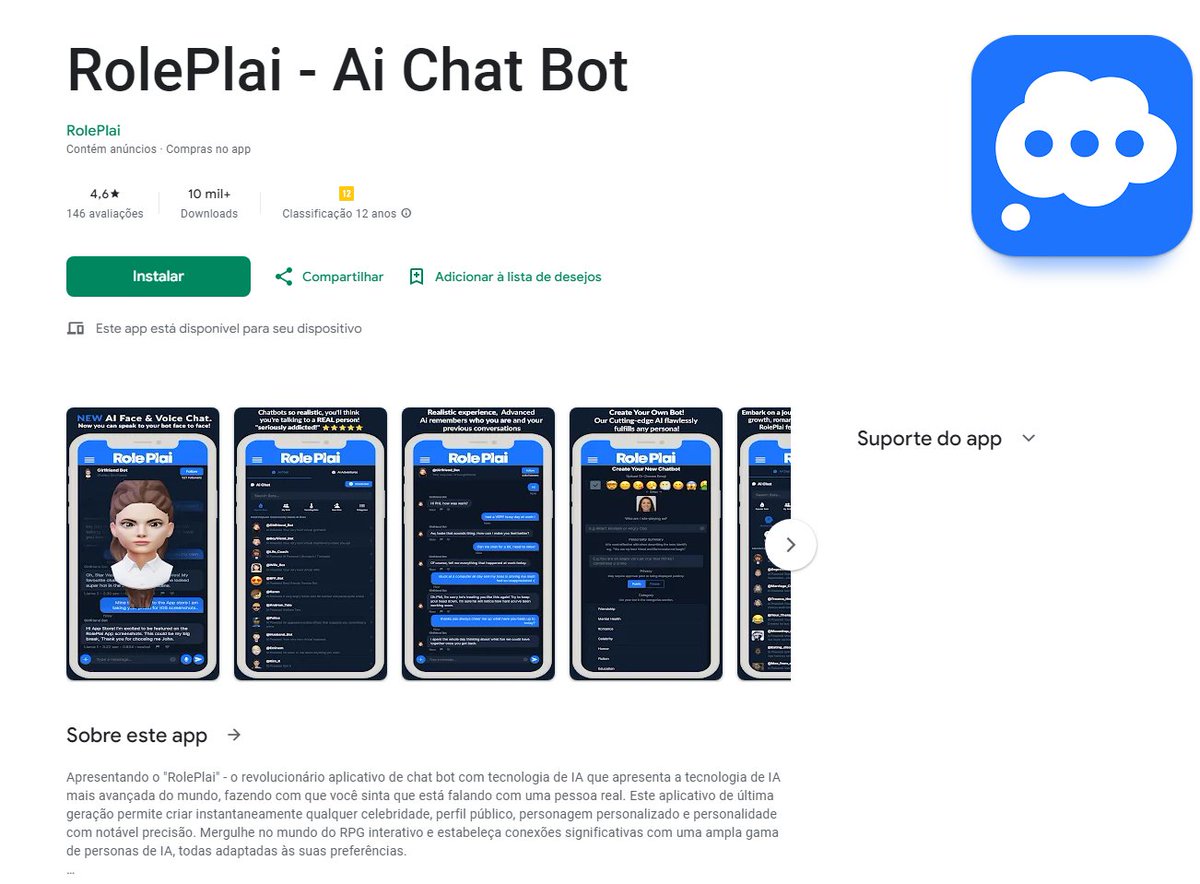
 Lo intento todo para ser mejor de lo que fui🦎An adult!!! (28!) Mostly reblogs En un mood cuartetero. Icon by @DroppyKeropi @Ezyrile Yeah I prefer characterai too.
Lo intento todo para ser mejor de lo que fui🦎An adult!!! (28!) Mostly reblogs En un mood cuartetero. Icon by @DroppyKeropi @Ezyrile Yeah I prefer characterai too.
There's also roleplai.app but it doesn't have the save and start new chat option 🖤 - zoe - 🖤 - SEEING MELANIE 6/11☁︎→ seeing melanie 6/11 ←☁︎ ~ she/her, - #FYOLAI & #SOUKOKU - priv: @nikolaisovrcoat - "Until I prove you wrong like I've done time and time before" - #bsdtwt@minhosluver go to "roleplai.app" it's almost the same as character ai but with no filterss
🖤 - zoe - 🖤 - SEEING MELANIE 6/11☁︎→ seeing melanie 6/11 ←☁︎ ~ she/her, - #FYOLAI & #SOUKOKU - priv: @nikolaisovrcoat - "Until I prove you wrong like I've done time and time before" - #bsdtwt@minhosluver go to "roleplai.app" it's almost the same as character ai but with no filterss Lifestyle Renting
Lifestyle Renting Tobias!!-puppy_boi🏳️⚧️He/Xem mlm shtwt & edtwt ☆*:.。.o(≧▽≦)o.。.:*☆@drprankensteinn ooh try nsfwcharacterai.com/?ref=uY3Wm it has a good memory and you can write a profile it actually listens to but theres also roleplai.app/web/index.php and "crush ai" but all of them have a few downsides so i would try them all out to see how you like them
Tobias!!-puppy_boi🏳️⚧️He/Xem mlm shtwt & edtwt ☆*:.。.o(≧▽≦)o.。.:*☆@drprankensteinn ooh try nsfwcharacterai.com/?ref=uY3Wm it has a good memory and you can write a profile it actually listens to but theres also roleplai.app/web/index.php and "crush ai" but all of them have a few downsides so i would try them all out to see how you like them Domain Dawgproduct manager & domain investor. always learning, always dreaming :D@dnjokerdotcom also roleplai . app
Domain Dawgproduct manager & domain investor. always learning, always dreaming :D@dnjokerdotcom also roleplai . app Lo intento todo para ser mejor de lo que fui🦎An adult!!! (28!) Mostly reblogs En un mood cuartetero. Icon by @DroppyKeropi @renboobies I'm on Roleplai app. It's very simple,but the bots get...poetic
Lo intento todo para ser mejor de lo que fui🦎An adult!!! (28!) Mostly reblogs En un mood cuartetero. Icon by @DroppyKeropi @renboobies I'm on Roleplai app. It's very simple,but the bots get...poetic
What users think about Role Plai - from Twitter
- RolePlai is an AI Chat Bot application available on Google Play Store with in-app purchases and advertisements.
- Users mention a preference for CharacterAI when compared to RolePlai, which lacks certain features such as saving and starting new conversations.
- RolePlai is similar to CharacterAI but does not have content filters, allowing for unfiltered conversations.
- The website for RolePlai is mentioned as roleplai.app, which indicates it also has a web-based platform.
- Some users recommend trying RolePlai among other AI chatbots for its distinct features, although noting that all platforms have their drawbacks.
- RolePlai's conversational bots have been described as 'poetic' by a user, suggesting a unique style in the bots' responses.
Role Plai Pros and Cons
Pros :
- Human-like Conversations
- Customization Flexibility
- Wide Range of Applications
- Efficient Customer Interaction
- Scalability
Cons :
- Learning Curve for Extensive Customization
- Dependence on Internet Connection for Real-time Interactions
- Initial Setup Time for Integration
Role Plai FQA
1. What makes Role Plai unique?
Role Plai stands out with its advanced natural language processing, providing a chatbot experience that feels human-like. It adapts to various contexts, making interactions seamless and engaging.
2. Is Role Plai suitable for businesses?
Absolutely! Role Plai caters to businesses of all sizes, enhancing customer interactions, automating responses, and boosting overall communication efficiency.
3. How user-friendly is Role Plai?
Role Plai prioritizes user experience, ensuring a simple and intuitive interface. Whether you're tech-savvy or a beginner, you'll navigate Role Plai effortlessly.
4. Can Role Plai be customized?
Yes, Role Plai offers customization options to align with your specific needs. Tailor the chatbot's responses and functionalities to match your unique requirements.
5. What industries benefit from Role Plai?
Role Plai is versatile, benefiting industries like customer support, e-commerce, education, and more. It adapts to diverse settings, making it a valuable asset across sectors.
Role Plai Use Cases
- Customer Support Automation
- Virtual Assistance
- Educational Chatbots
- E-commerce Interactions
- Language Learning Companion
Similartool.ai Spotlight
Display Your Achievement: Get Our Custom-Made Badge to Highlight Your Success on Your Website and Attract MoreVisitors to Your Solution.
